
Grandfather’s Journey
Age Level:
6-9 Genre:
Biography, Nonfiction 
The Name Jar
Age Level:
3-6 Genre:
Fiction 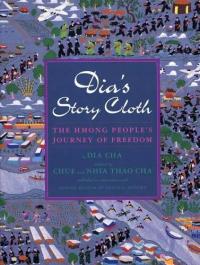
Dia’s Story Cloth: The Hmong People’s Journey to Freedom
Illustrator:
Chiie Thao Cha Age Level:
9-12 Genre:
Biography, Nonfiction 
Dragonwings
Age Level:
9-12 Genre:
Historical Fiction, Fiction 
Goodbye, Vietnam
Age Level:
9-12 Genre:
Historical Fiction, Fiction 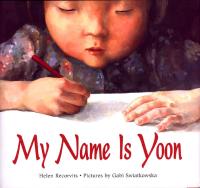
My Name Is Yoon
Illustrator:
Gabi Swiatkowska Age Level:
6-9 Genre:
Fiction 
Good-Bye, 382 Shin Dang Dong
Illustrator:
Yangsook Choi Age Level:
6-9 Genre:
Fiction 
The Favorite Daughter
Age Level:
3-6 Genre:
Fiction 
Angel Island: Gateway to Gold Mountain
Age Level:
9-12 Genre:
Nonfiction 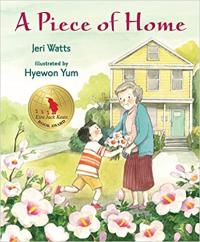
A Piece of Home
Illustrator:
Hyewon Yum Age Level:
3-6 Genre:
Fiction 
Little Cricket
Age Level:
9-12 Genre:
Fiction 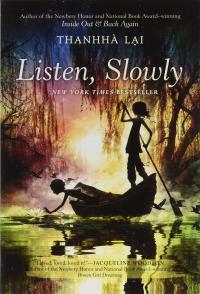
Listen, Slowly
Age Level:
9-12 Genre:
Fiction 
Inside Out and Back Again
Age Level:
9-12 Genre:
Historical Fiction, Fiction 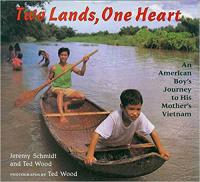
Two Lands, One Heart: An American Boy’s Journey to His Mother’s Vietnam
Age Level:
9-12 Genre:
Nonfiction 
Angel Child, Dragon Child
Illustrator:
Vo Dinh Mai Age Level:
3-6 Genre:
Fiction 
Pie in the Sky
Age Level:
9-12 Genre:
Fiction 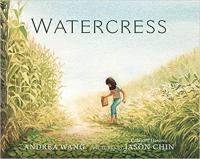
Watercress
Illustrator:
Jason Chin Age Level:
3-6 Genre:
Fiction 
Rosa’s Song
Illustrator:
Pascal Campion Age Level:
6-9 Genre:
Fiction 
Luli and the Language of Tea
Illustrator:
Hyewon Yum Age Level:
3-6 Genre:
Fiction 